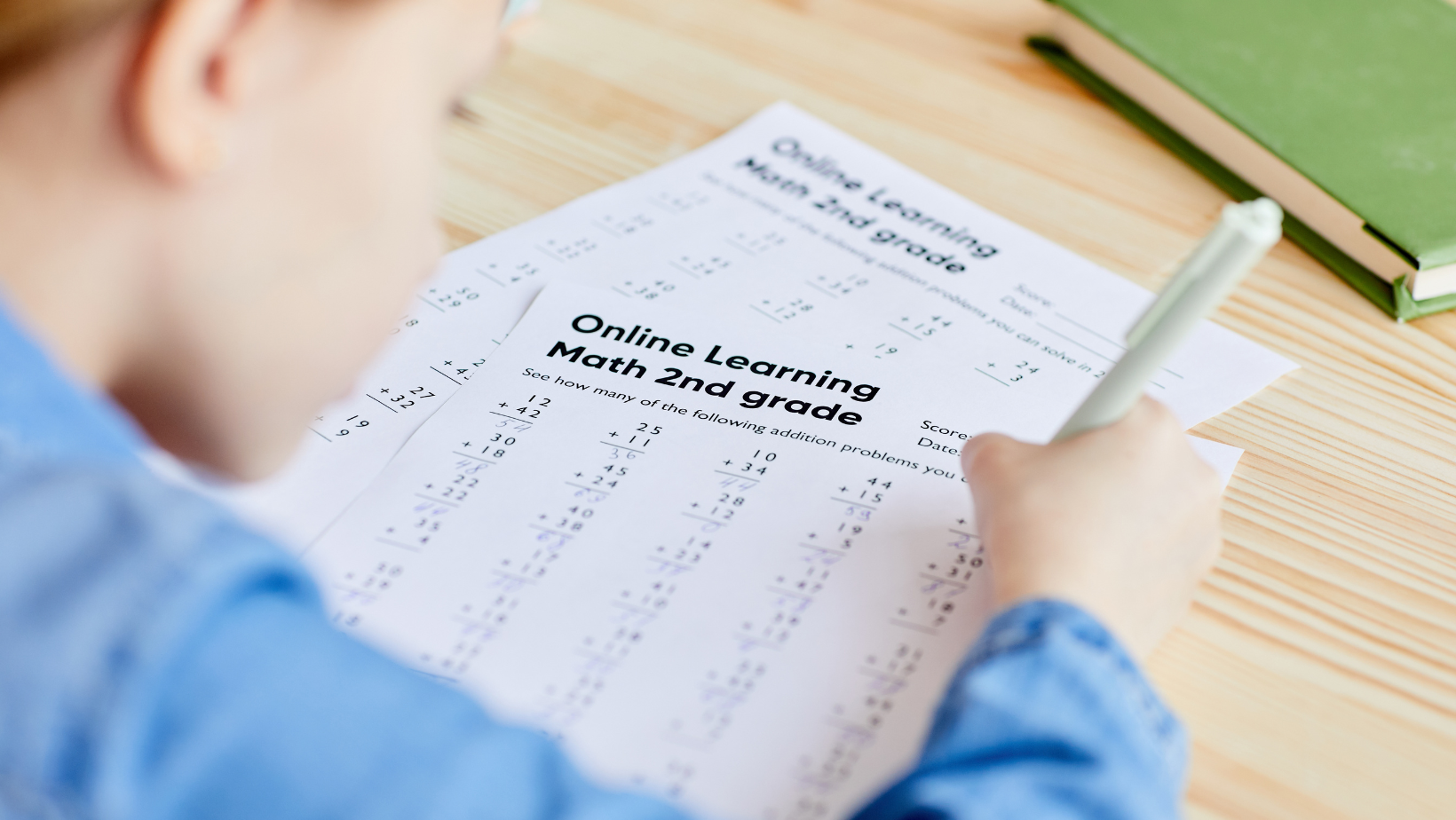Insights
Closing the Achievement Gap in Math
Over the past several years, the achievement gap in math has widened. Elementary math scores in the U.S. have seen a sharp decline. According to the National Center for Education Statistics (NCES), average math scores for both 4th and 8th graders have dropped to levels last seen in 1995—effectively erasing nearly three decades of progress. This regression means students are entering upper grades with foundational gaps, making it harder to master more complex concepts.
Without intervention, these gaps often persist, affecting not only test scores but also students’ confidence and long-term success. In today’s increasingly data-driven world, math literacy isn’t optional—it’s essential.

The Power of Early Math Skills
Research consistently shows that early math skills are a powerful predictor of future academic success. A meta-analysis by Duncan et al. (2007) revealed that early mathematical understanding is even more predictive of later achievement than early reading. Importantly, this correlation remained strong regardless of factors like IQ, family income, or parenting style.
This reinforces the importance of developing strong math foundations in the early years. Children who build number sense, reasoning skills, and fluency early on are better positioned to tackle challenging content later.

The Summer Slide and Its Impact
Every summer, many students experience “summer slide”—the loss of academic gains made during the school year. This effect is especially pronounced in math, with studies estimating a loss of nearly three months of progress during summer break. These losses compound over time, putting struggling students further behind.
To prevent this decline, students need access to consistent, engaging math practice over the summer months. Well-designed summer math programs can reinforce key skills and even accelerate learning when structured effectively.

Math Strategies That Work to Close the Achievement Gap in Math
One of the most effective ways to accelerate math growth—especially in the wake of pandemic-related disruptions—is high-dosage tutoring. This strategy involves small-group instruction (typically 3–5 students), delivered multiple times a week with a focus on targeted skills. Research consistently shows that high-dosage tutoring can produce gains of 0.2 to 0.4 standard deviations—enough to reverse several months of learning loss.
Summer math programs offer a prime opportunity to deliver this type of intensive support. With smaller class sizes and fewer competing academic demands, students can revisit foundational concepts, engage in hands-on problem solving, and rebuild confidence in a lower-pressure setting. These programs are most effective when they incorporate spaced learning, allowing students to encounter key ideas multiple times in varied ways to ensure deep and lasting understanding.

Spaced Learning: A Proven Strategy for Long-Term Retention
While high-dosage tutoring helps close gaps through focused instruction, its impact is magnified when paired with spaced learning—an instructional approach where content is revisited at intervals over time. Unlike massed learning, which delivers material all at once, spaced learning takes advantage of how memory works: reintroducing concepts just as students begin to forget them. This strengthens retention and helps move learning from short-term recall to long-term mastery.
In math education, spaced learning might look like reviewing place value weeks after the initial lesson or returning to multiplication facts through journal prompts, spiral reviews, or games. When embedded into tutoring sessions, classroom routines, or summer programs, these periodic check-ins reduce the need for reteaching and reinforce foundational knowledge.
Check out this article for more about spaced learning.
Together, high-dosage tutoring and spaced learning offer a powerful, research-backed combination for helping students not only catch up—but stay ahead. These approaches become even more impactful as part of a broader framework that includes thoughtful remediation and targeted intervention, designed to meet students exactly where they are in their learning journey.

Effective Remediation and Intervention
To truly close achievement gaps, educators must go beyond whole-class instruction and incorporate both remediation and intervention. While remediation focuses on reteaching concepts that students missed or didn’t fully grasp the first time, intervention delivers targeted instruction to address specific skill gaps.
Spaced learning and high-dosage tutoring can amplify the impact of these efforts. For example, a remediation lesson on place value becomes more effective when reinforced over time through spaced review activities. Similarly, intervention sessions are more impactful when delivered frequently in small groups—mirroring the high-dosage tutoring model. Together, these strategies form a cohesive and flexible framework for helping all students make meaningful progress in math.

ORIGO Education: A Comprehensive Approach
ORIGO Education offers tools designed to support teachers in closing the achievement gap with strategies that integrate spaced learning, remediation, intervention, and fluency development.
- Stepping Stones 2.0 embeds spaced learning into its lesson structure, with built-in review cycles that revisit key concepts over time—no extra prep required. Check out what’s new in Stepping Stones 2025-2026!
- Intervention Essentials provides short, research-based lessons for grades 3–8, ideal for small-group instruction or summer programs.
- Book and Box of Fact Strategies help build fluency in all four operations with visual aids and engaging activities.
- Think Tanks offer creative, leveled problem-solving tasks that foster independent thinking. Get your sample cards here!
These resources align with what we know works: consistent practice, strategic review, and thoughtful differentiation.

Summer Strategies to Close the Achievement Gap in Math
Whether implemented in a classroom or at home, these strategies can support summer math growth:
Spaced Learning Ideas
- Weekly Review Days: Dedicate a day to revisit old topics using spiral review sheets or games.
- Math Journals: Have students explain or prove a concept weekly (e.g., “Explain why 8 × 7 = 56”). The Student Journal is part of the ORIGOmath elementary math intervention program, and contains grades 1-5 math intervention student worksheets and activities.
- Rotating Flashcard Sets: Focus on 2–3 fact families per week, revisiting previous sets often.
- Think Tank Tasks: Assign one creative challenge per week to stretch reasoning and problem-solving.
Remediation Tips
- Use quick checks or exit tickets to identify core gaps.
- Reteach misunderstood concepts using manipulatives.
- Try mini-lessons at home (10–15 minutes) using whiteboards or chalk for fun, low-pressure review.
- Use error analysis to explore why mistakes happen and how to fix them.

Intervention in Small Groups
- Provide targeted instruction 2–3 times per week based on need.
- Begin with daily math fluency routines like number talks or pattern practice.
- Incorporate real-world math: shopping, measuring, or budgeting.
- Track student progress using simple goal charts and remember to celebrate the small wins!
Check out this article for more about intervention.
Closing the math achievement gap is no small task—but it is possible. By understanding the root causes of learning loss, prioritizing early math development, leveraging high-impact strategies like high-dosage tutoring and spaced learning, and combining those with targeted remediation and intervention, educators can make meaningful progress.
With thoughtful planning and access to the right tools, we can ensure that all students—regardless of background or setbacks—have the opportunity to develop strong mathematical foundations that last a lifetime.
Planning a summer math program? Check out this article for tips on making your summer math program the most successful!



